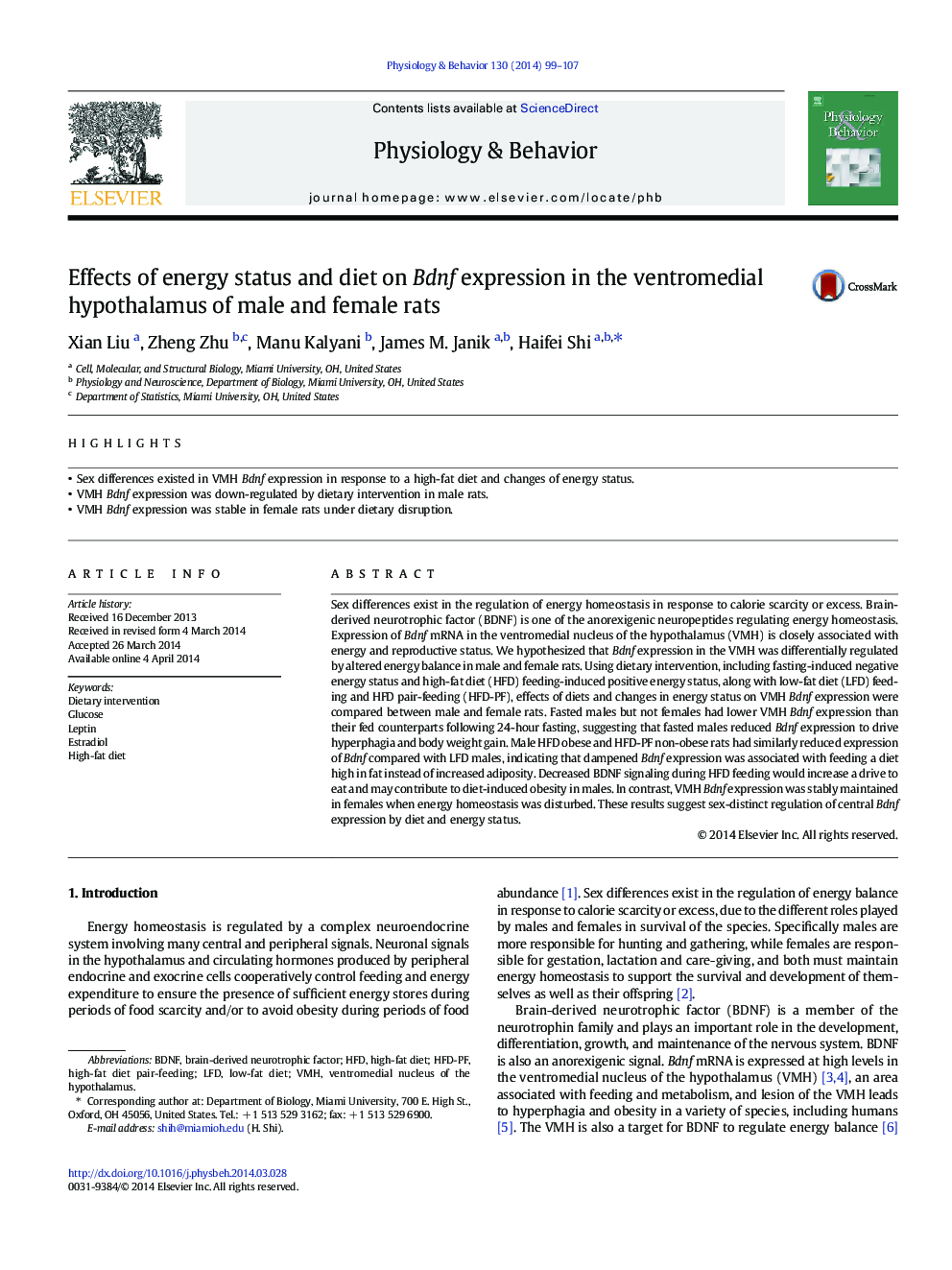| Article ID | Journal | Published Year | Pages | File Type |
|---|---|---|---|---|
| 5924216 | Physiology & Behavior | 2014 | 9 Pages |
â¢Sex differences existed in VMH Bdnf expression in response to a high-fat diet and changes of energy status.â¢VMH Bdnf expression was down-regulated by dietary intervention in male rats.â¢VMH Bdnf expression was stable in female rats under dietary disruption.
Sex differences exist in the regulation of energy homeostasis in response to calorie scarcity or excess. Brain-derived neurotrophic factor (BDNF) is one of the anorexigenic neuropeptides regulating energy homeostasis. Expression of Bdnf mRNA in the ventromedial nucleus of the hypothalamus (VMH) is closely associated with energy and reproductive status. We hypothesized that Bdnf expression in the VMH was differentially regulated by altered energy balance in male and female rats. Using dietary intervention, including fasting-induced negative energy status and high-fat diet (HFD) feeding-induced positive energy status, along with low-fat diet (LFD) feeding and HFD pair-feeding (HFD-PF), effects of diets and changes in energy status on VMH Bdnf expression were compared between male and female rats. Fasted males but not females had lower VMH Bdnf expression than their fed counterparts following 24-hour fasting, suggesting that fasted males reduced Bdnf expression to drive hyperphagia and body weight gain. Male HFD obese and HFD-PF non-obese rats had similarly reduced expression of Bdnf compared with LFD males, indicating that dampened Bdnf expression was associated with feeding a diet high in fat instead of increased adiposity. Decreased BDNF signaling during HFD feeding would increase a drive to eat and may contribute to diet-induced obesity in males. In contrast, VMH Bdnf expression was stably maintained in females when energy homeostasis was disturbed. These results suggest sex-distinct regulation of central Bdnf expression by diet and energy status.
